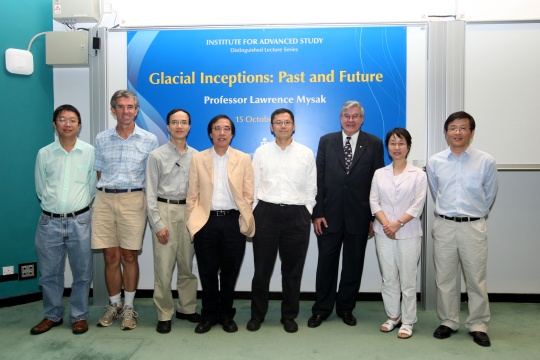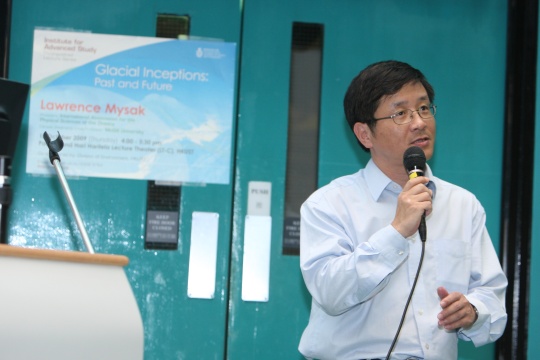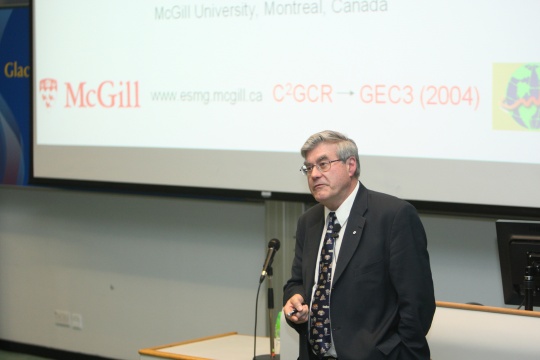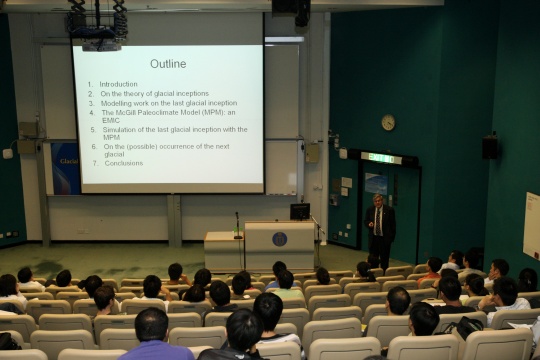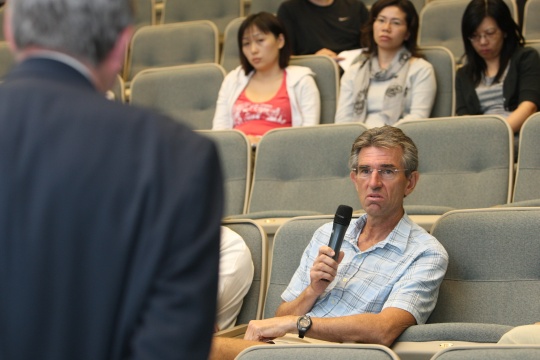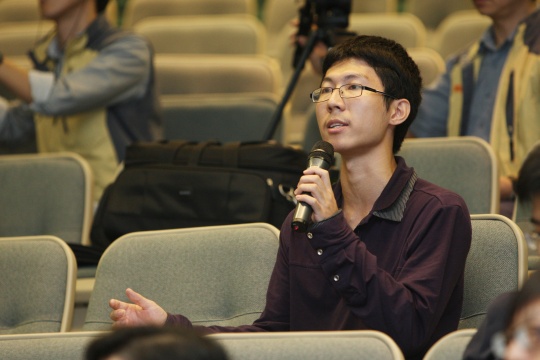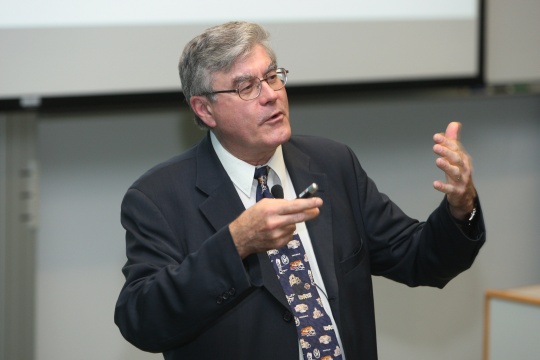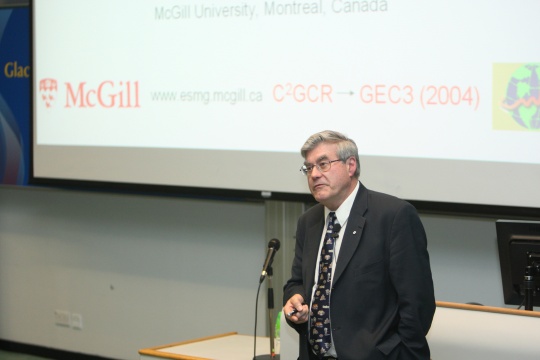Glacial Inceptions: Past and Future
Abstract
Determining the causes and mechanisms of glacial inceptions during the past half million years has challenged scores of climate theoreticians and modellers. After introducing the basic Milankovitch theory of glaciation, the speaker will review a number of earlier modelling studies on past glacial inceptions which have employed high-resolution GCMs or EMICs: Earth system Models of Intermediate Complexity. Following an overview of various EMICs, including the McGill Paleoclimate Model (MPM), he will present some recent simulations of the last glacial inception (LGI) in response to orbital (Milankovitch) and radiative (atmospheric CO2) forcing. Special attention will be given to determining the relative roles of the ocean thermohaline circulation, freshwater fluxes, orography, cryospheric processes and vegetation dynamics during the inception phase.
This talk will conclude with a discussion on the (possible) occurrence of the next glacial period. He shall present EMIC simulations of the climate for the next 100 kyr which are forced by a various prescribed atmospheric CO2 levels, as well as insolation changes. The influence of a near-term global warming scenario on glacial inception will also be examined. Finally, the recent simulations of glacial inceptions in the Potsdam EMIC which includes an interactive carbon cycle will be described. It is not inconceivable that due to human activities, the current interglacial will last for at least another half million years.
About the Speaker
A champion of the environment, Prof.Lawrence Mysak has spent his career helping improve our understanding of natural climate variability and global change. He is internationally regarded for his work on air-ice-ocean interactions and the modeling of glacial and warm climates. His work on the Northern Seas of Canada has stimulated extensive research on the Arctic climate system. In 1967, after earning his doctorate from Harvard University, he joined the faculty at University of British Columbia. In 1986, he moved to McGill University and in 1989 was appointed Canada Steamship Lines Professor of Meteorology. Prof. Mysak has supervised 75 graduate and postdoctoral students, 19 of whom are professors in 11 countries.
Prof. Mysak has made outstanding contributions towards the development of national institutions that further science and engineering in Canada. He is the founding director of McGill’s Centre for Climate and Global Change Research and served as president of the Academy of Science of the Royal Society of Canada. His contributions have been recognized with more than 27 national and international awards and honours. He is a Member of the Order of Canada, a Fellow of the American Geophysical Union, and was the first Canadian to receive the Alfred Wegener Medal from the European Geosciences Union, reserved for scientists of exceptional merit.

